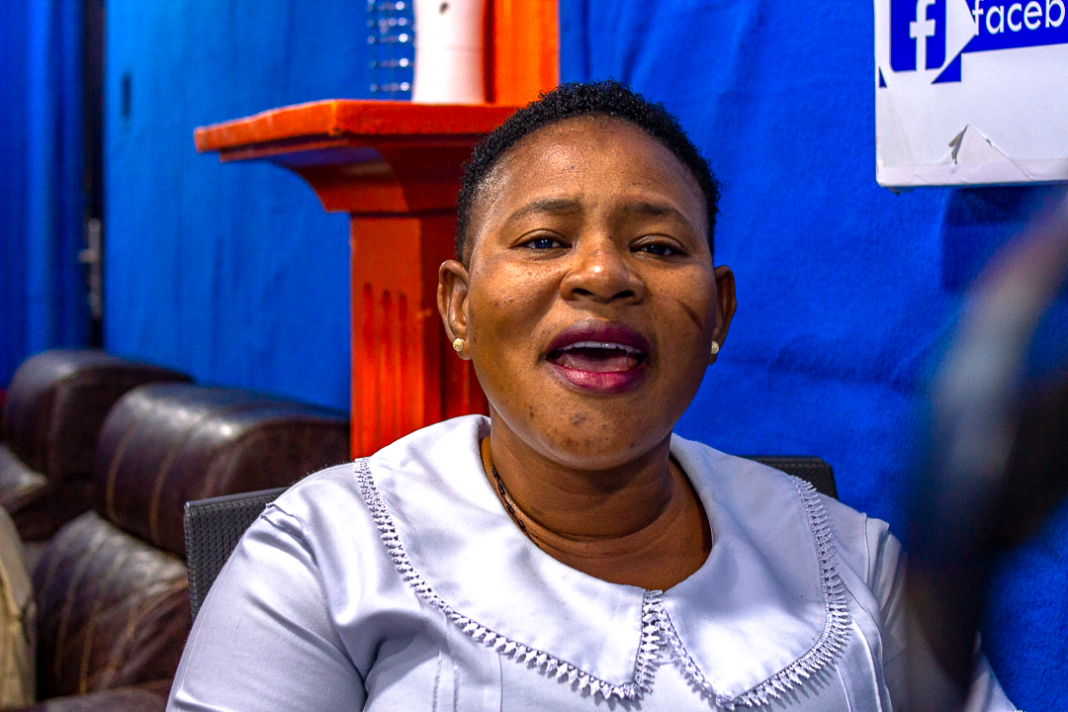Public Health Nurse at the Bolgatanga Municipal Health Directorate, Patience Abayom, has called on parents to better cater for the needs of their children, particularly girls who have reached puberty and started menstruating.
Ms. Abayom, speaking to Mark Smith on A1 Radio’s Day Break Upper East Show on Wednesday, December 13, 2023, explained that while the Ghana Health Service, along with other stakeholders, would continue to educate young girls on menstrual hygiene, parents need to step up and take a greater role in the lives of their girls.
“We carry out our education in the various schools. From time to time, we also organize durbars to educate people. Recently, a school had a PTA meeting, and they invited the parents and invited us to come and talk to them. Unfortunately, how many of the parents came? They sent people to come and sit in. But the education was for the parents.”
Additionally, Ms. Abayom called on children to support the businesses of their parents as the proceeds from these businesses would be what goes into servicing their needs.
Meanwhile, Youth Harvest Foundation Ghana (YHFG), a youth-centered not-for-profit organization based in the Upper East Region, commends A1 Radio, a subsidiary of the Agreed Best Communication Company, for its notable contribution to the socio-economic development of the Upper East Region.
A1 Radio’s Moses Apiah presented a documentary that focused on exploring the nuances of period poverty in the Upper East Region. Dubbed “Luxury I Cannot Afford: Dilemma of Teen Girls in the Upper East Region,” the documentary collected the thoughts of various stakeholders in the region on the issue. It also explored solutions to the problems identified.
When Gabriel Akandawen Ananya, Project Officer at YHFG, spoke on A1 Radio’s Day Break Upper East Show during the launch of the documentary, he highlighted the essence of the work put together by Moses Apiah.
“I must commend the team that put this together. Also, as an organization, we have been working throughout the years to have media partners like A1 Radio so we can do this work and increase the voices of these young people regarding the dilemmas they face. It is a great piece of work. If you listen to it, you will see that it captures all relevant stakeholders in the fight against this injustice. I think as we continue to collaborate and work together, more people would also come on board so that we can solve this issue.”
For Mr. Ananya, one of the lowest points of the documentary was when one of the young ladies who was interviewed, because of the many challenges she faces associated with menstrual health, wished she were a boy.
Moses Apiah, producer of the documentary, speaking to Mark Smith on the Day Break Upper East Show, hoped that the documentary would serve as a call to action to all stakeholders.
“Despite advocates and discussions surrounding menstrual health in the Upper East Region, teenage girls continue to face formidable challenges not only in accessing sanitary pads during their menstrual cycles but also in receiving proper education on the subject, a poignant reality explored in this documentary. The documentary ‘Luxury I Cannot Afford: The Dilemma of Teen Girls in Upper East Region’ vividly captures the struggles of schoolgirls who navigate the daunting task of acquiring sanitary pads amidst economic constraints and societal stigma. Financial limitations emerge as a pervasive hurdle, with many families unable to afford this essential hygiene product regularly. The documentary delves into the stories of resilient young girls who confront the harsh choice between prioritizing their basic needs and securing sanitary pads. This economic strain not only jeopardizes their physical well-being but also underscores the systemic inequalities prevalent in the region. As the documentary unfolds, it becomes evident that addressing these challenges requires a multifaceted approach involving education, advocacy, and policy changes. Ultimately, it seeks to ignite conversations and prompt tangible actions that empower teenage girls in the Upper East Region to navigate their restoration periods with dignity and without compromise.”
The production of the documentary was supported by the Youth Harvest Foundation Ghana.
Source: A1Radioonline.com|101.1MHz|Mark Kwasi Ahumah Smith|Ghana


